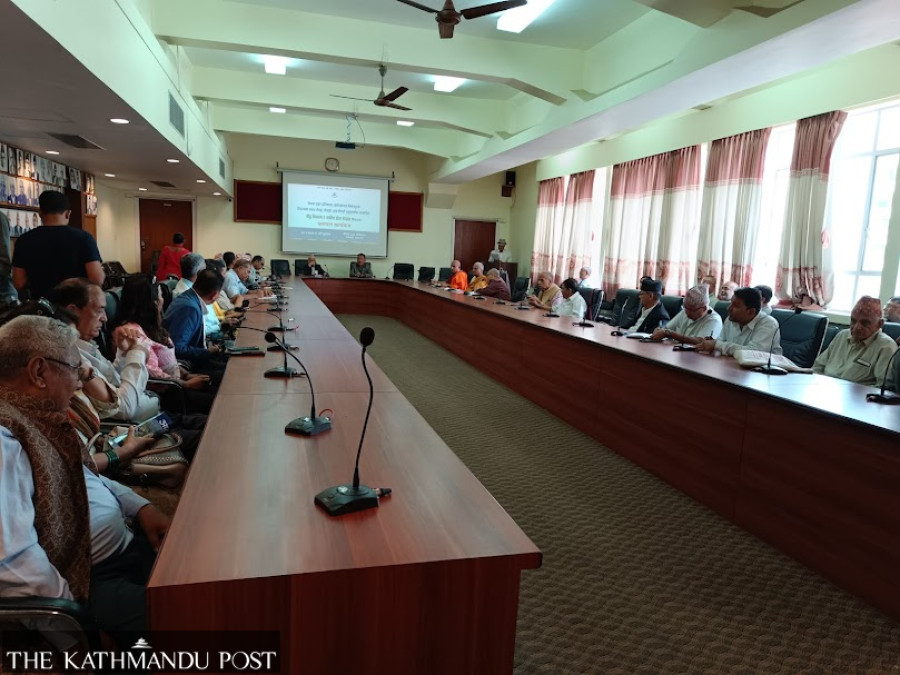National
Participants stress increased significance of peace zone proposal
Call for widespread support and implementation of Lumbini declaration from local to global levels.
Post Report
The Nepal Academy (Department of Philosophy), in collaboration with the Vipassana Meditation Centre, Dang, organised a discussion programme on “Nepal as a Peace Zone and Buddhist Contemplation” in Kathmandu on Friday.
The programme focused on implementing the ‘Lumbini Resolution for Nepal as a Zone of Peace and for World Peace’, passed on November 27, 2023.
Endorsed through the active initiative of the ‘Nepal Peace Zone Campaign’, the resolution commits to advancing this major campaign from local wards, municipalities, and provincial levels, through parliament and government, all the way to the United Nations. It also calls for a cultural transformation of humanity through adopting Buddhist philosophy, contemplation, education, clean and peaceful lifestyles, and practices such as Vipassana, at the level of individuals, families, communities, nations, and globally.
During the programme, guests and participants observed that the significance of the ‘Peace Zone proposal’, initially declared by then Head of State King Birendra Shah and supported by 130 nations including China and the United Nations, has further increased.
They emphasised that gaining support from neighbouring India for the ‘Peace Zone proposal’ is crucial for addressing Nepal’s national security, independence, development, and the growing geopolitical imbalances and tensions in the region.
The programme was chaired by senior journalist Narayan Prasad Sharma, campaign coordinator and founder of Vipassana Dang. The chief guest was Bhupal Rai, chancellor of the Academy, with special guests Bhikkhus Sagar Dhamma and Dhammananda.
In their addresses, Chancellor Rai and the bhikkhus expressed their full support for the campaign, including backing from the Nepal Academy and the monasteries in Lumbini and Kathmandu with which they are affiliated.
In his closing remarks, Sharma called upon all Nepalis concerned with Nepal's welfare and Buddhist contemplation to actively and unconditionally support the campaign.
He urged them to organise and participate in discussions, seminars, and dialogues at all levels—from homes, neighbourhoods, and communities to educational institutions, and intellectual, professional, and political arenas. Sharma also requested that the Lumbini Declaration be formally approved by all organisations, communities, and elected bodies, and urged everyone to disseminate information about it as widely as possible.




 9.83°C Kathmandu
9.83°C Kathmandu













